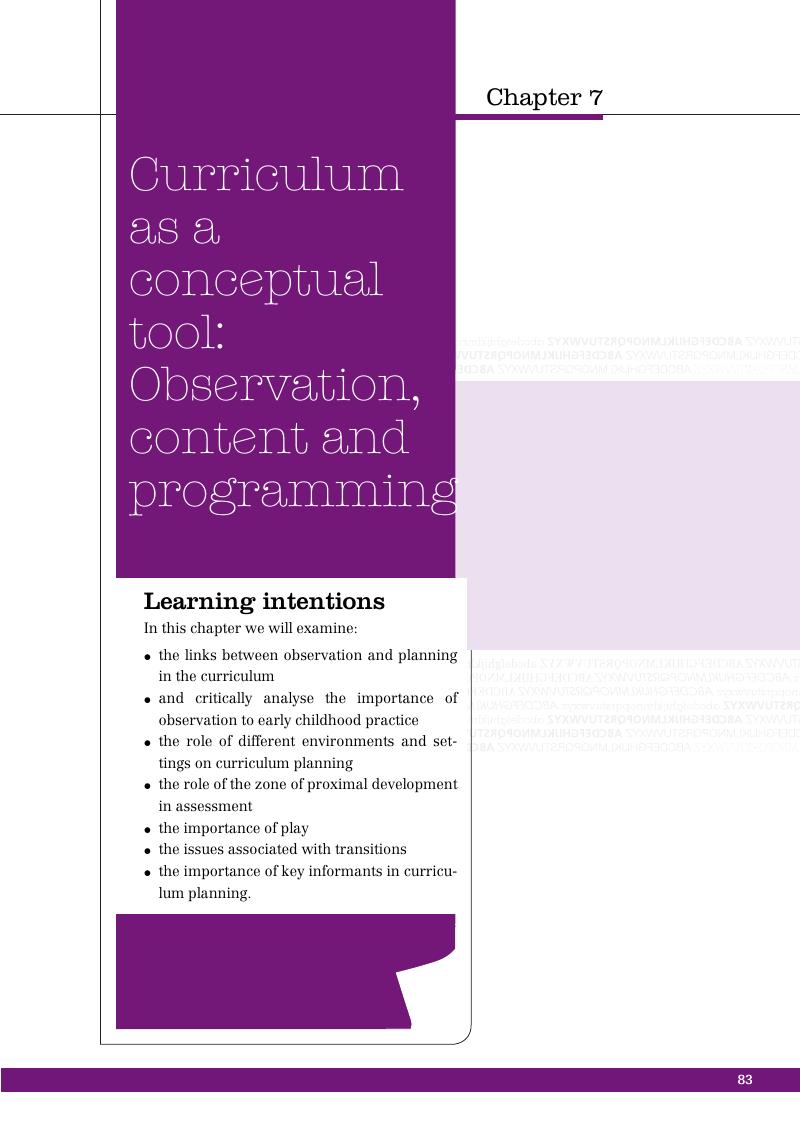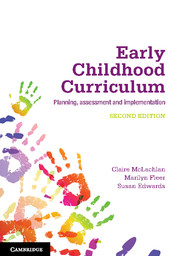Book contents
- Frontmatter
- Contents
- About the authors
- Acknowledgements
- 1 Introduction
- 2 Theory, research and the early childhood curriculum
- 3 Development and learning – how views of development shape how curriculum is framed
- 4 Curriculum as a cultural broker
- 5 Interpreting early childhood curriculum
- 6 Cultural-historical curriculum in action
- 7 Curriculum as a conceptual tool: Observation, content and programming
- 8 Assessing children and evaluating curriculum
- 9 Content knowledge: The sciences, maths and numeracy
- 10 Content knowledge: Language, literacy and ICT
- 11 Content knowledge: The arts and health, wellbeing and physical activity
- 12 Conclusions
- Glossary
- References
- Index
7 - Curriculum as a conceptual tool: Observation, content and programming
- Frontmatter
- Contents
- About the authors
- Acknowledgements
- 1 Introduction
- 2 Theory, research and the early childhood curriculum
- 3 Development and learning – how views of development shape how curriculum is framed
- 4 Curriculum as a cultural broker
- 5 Interpreting early childhood curriculum
- 6 Cultural-historical curriculum in action
- 7 Curriculum as a conceptual tool: Observation, content and programming
- 8 Assessing children and evaluating curriculum
- 9 Content knowledge: The sciences, maths and numeracy
- 10 Content knowledge: Language, literacy and ICT
- 11 Content knowledge: The arts and health, wellbeing and physical activity
- 12 Conclusions
- Glossary
- References
- Index
Summary

- Type
- Chapter
- Information
- Early Childhood CurriculumPlanning, Assessment, and Implementation, pp. 83 - 112Publisher: Cambridge University PressPrint publication year: 2013

